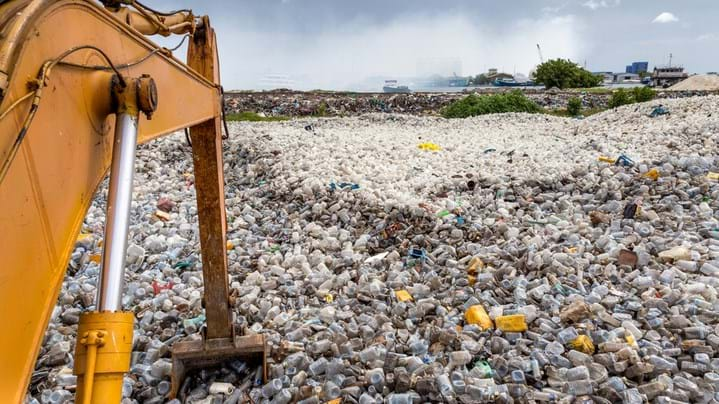UK environment secretary targets waste reduction in pledge to make ‘reuse and repair the norm’

UK ENVIRONMENT secretary Steve Reed yesterday unveiled the government’s ambitious plans to reduce industrial waste in a speech to business leaders in London.
Speaking to leaders from Mace, British Land, Jaguar Land Rover, the Food and Drink Federation and the Environmental Services Association, Reed said he intends to make “reuse and repair the norm” and to end what he calls the UK’s “throwaway society”.
Reed’s speech comes as the Department for Environment, Food & Rural Affairs (Defra) prepares to release its circular economy strategy this autumn, developed by the independent taskforce established last year. The strategy will outline plans for reducing waste and promoting reuse and recycling across industries.
The strategy will initially prioritise the textiles, transport, construction, agri-food, chemicals, and plastics sectors before drawing up plans on how other industries can reduce waste. Reed stressed that “businesses will lead the transition to a circular economy”.
According to a 2023 report from consultancy Qflow, the construction industry generates 62% of all UK waste. Reed highlighted the waste-related challenges that will come with the government’s target to build 1.5 million homes in England by 2029, saying: “We can, and we must, get better use out of our materials and eradicate waste.”
The taskforce will look at the emerging technologies for recycling and reuse of materials and will evaluate what support is needed from government for scaleup. Defra estimates that their push for more recycling and reuse can generate £10bn (US$13bn) in investment to the UK.
Reed said: “It’s time to end Britain’s throwaway society. The status quo is economically, environmentally, and socially unsustainable.
“Moving to a circular economy is a pivotal moment for British businesses to innovate, grow and lead the world, so we can slash waste and strengthen supply chains.”
Reed also promoted the waste reduction initiatives the government already has planned. Later this year, the extended producer responsibility will come into force, tasking local authorities with charging fees to businesses who supply or import packaging. The government also plans to introduce a national standard for kerbside recycling collections next year.
‘Shoddy products, blatant waste’
Recycling is one of nine sectors likely to benefit from Project Willow – the regeneration programme to transform the Grangemouth oil refinery in Scotland into a sustainable industry hub – after detailed proposals were published last week.
Andrew Morlet, chair of the circular economy taskforce and former CEO of anti-waste charity the Ellen MacArthur Foundation, said the government’s proposals have the potential to make the UK a “clean energy superpower”.
Defra also cited the Russian invasion of Ukraine as motivating the push towards reuse of materials, saying that an “increasingly unstable world” will only cause more interruptions to global supply chains.
Libby Peake, another member of the 18-strong taskforce and head of resource policy at the Green Alliance, said: “Waste is baked into our current economic system and causes us harm on so many levels. It’s degrading our environment and international supply chains to the extent that economic shocks become inevitable.
“It adds a cost burden to businesses’ bottom lines and frustrates people who are fed up with shoddy products, blatant waste and litter.”
Peake said the new strategy will present an “incredible opportunity” to cut down on waste.
Recent Editions
Catch up on the latest news, views and jobs from The Chemical Engineer. Below are the four latest issues. View a wider selection of the archive from within the Magazine section of this site.




